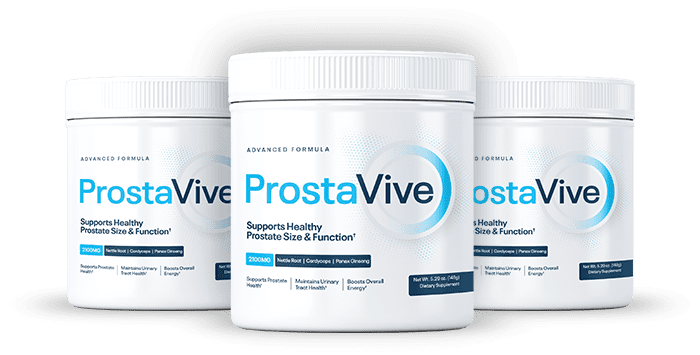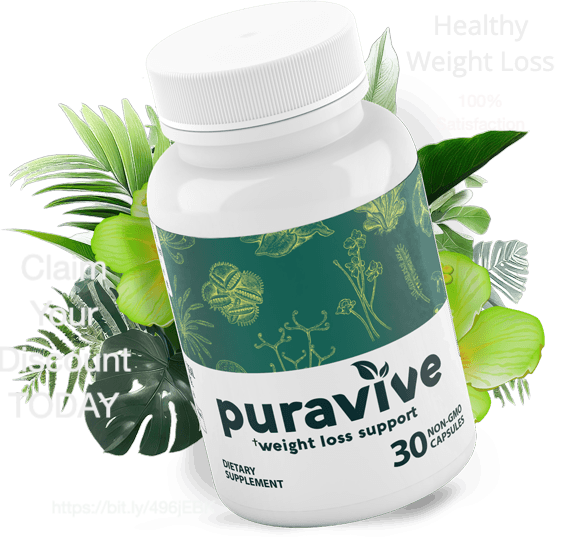Do prostate supplements actually work?

Do prostate supplements actually work?
Potential Benefits of Prostate Supplements

Prostate health is a topic that many men may not think about until they start experiencing symptoms such as frequent urination, difficulty urinating, or even pain in the pelvic area. As men age, the risk of developing prostate issues increases, which is why many turn to prostate supplements as a way to support their prostate health. But do these supplements actually work?
There are a variety of prostate supplements on the market, each claiming to improve prostate health in some way. Some of the most common ingredients found in these supplements include saw palmetto, beta-sitosterol, and lycopene. These ingredients are believed to help reduce inflammation, improve urinary flow, and even reduce the risk of developing prostate cancer.
While the research on the effectiveness of prostate supplements is still ongoing, there are some potential benefits that have been observed in studies. For example, saw palmetto has been shown to improve urinary symptoms in men with benign prostatic hyperplasia (BPH), a common condition in older men that causes the prostate to enlarge. Beta-sitosterol has also been found to improve urinary symptoms and flow in men with BPH.
In addition to improving urinary symptoms, some studies have suggested that certain ingredients in prostate supplements may also help reduce the risk of developing prostate cancer. Lycopene, a powerful antioxidant found in tomatoes, has been linked to a lower risk of prostate cancer in some studies. Other ingredients, such as green tea extract and selenium, have also been studied for their potential anti-cancer properties.
While these potential benefits are promising, it’s important to note that not all prostate supplements are created equal. Some supplements may contain low-quality ingredients or may not be properly dosed, which can affect their effectiveness. It’s always a good idea to do your research and choose a reputable brand when selecting a prostate supplement.
In addition to taking prostate supplements, there are other lifestyle changes that can help support prostate health. Eating a healthy diet rich in fruits, vegetables, and whole grains, exercising regularly, and maintaining a healthy weight can all contribute to overall prostate health. Avoiding smoking and limiting alcohol consumption can also help reduce the risk of developing prostate issues.
Ultimately, the decision to take prostate supplements is a personal one. If you are experiencing symptoms of prostate issues or are at a higher risk of developing prostate cancer, it may be worth considering adding a supplement to your daily routine. However, it’s always a good idea to talk to your healthcare provider before starting any new supplement regimen, especially if you are taking other medications or have underlying health conditions.
In conclusion, while the research on the effectiveness of prostate supplements is still ongoing, there are some potential benefits to taking these supplements. Ingredients such as saw palmetto, beta-sitosterol, and lycopene have been studied for their ability to improve urinary symptoms, reduce inflammation, and even lower the risk of developing prostate cancer. However, it’s important to choose a high-quality supplement and make other lifestyle changes to support overall prostate health. Remember to always consult with your healthcare provider before starting any new supplement regimen.
Scientific Evidence Supporting Prostate Supplements
Prostate health is a topic that many men are concerned about as they age. With the prevalence of prostate issues such as enlargement and cancer, it’s no wonder that there is a growing interest in prostate supplements. But do these supplements actually work? Let’s take a closer look at the scientific evidence supporting prostate supplements.
One of the most popular ingredients in prostate supplements is saw palmetto. This plant extract has been used for centuries to treat urinary and prostate problems. Several studies have shown that saw palmetto can help reduce symptoms of benign prostatic hyperplasia (BPH), such as frequent urination and difficulty emptying the bladder. While the exact mechanism of action is not fully understood, it is believed that saw palmetto may help reduce inflammation and block the production of dihydrotestosterone (DHT), a hormone that can contribute to prostate enlargement.
Another common ingredient in prostate supplements is beta-sitosterol. This plant sterol is thought to help reduce inflammation in the prostate and improve urinary flow. Several studies have shown that beta-sitosterol can help reduce symptoms of BPH and improve overall prostate health. It is believed that beta-sitosterol works by inhibiting the enzyme 5-alpha-reductase, which converts testosterone into DHT.
In addition to saw palmetto and beta-sitosterol, many prostate supplements also contain zinc, selenium, and vitamin E. These nutrients are important for prostate health and may help reduce the risk of prostate cancer. Zinc, in particular, is essential for maintaining a healthy prostate gland and may help reduce the risk of developing prostate cancer. Selenium is a powerful antioxidant that can help protect the prostate from oxidative damage, while vitamin E has been shown to reduce inflammation and improve overall prostate health.
While the scientific evidence supporting prostate supplements is promising, it is important to note that not all supplements are created equal. Some products may contain low-quality ingredients or ineffective doses, which can limit their effectiveness. It is important to choose a reputable brand that uses high-quality ingredients and has been tested for safety and efficacy.
In conclusion, prostate supplements can be a valuable addition to a man’s health regimen. The scientific evidence supporting the use of ingredients such as saw palmetto, beta-sitosterol, zinc, selenium, and vitamin E is strong, and these nutrients have been shown to improve prostate health and reduce the risk of prostate issues. However, it is important to choose a high-quality supplement from a reputable brand to ensure maximum effectiveness. If you are concerned about your prostate health, talk to your doctor about incorporating a prostate supplement into your daily routine. Your prostate will thank you for it!
Risks and Limitations of Prostate Supplements
Prostate supplements have become increasingly popular in recent years as more and more men seek natural ways to support their prostate health. These supplements often contain a combination of vitamins, minerals, and herbal extracts that are believed to promote prostate health and reduce the risk of conditions such as benign prostatic hyperplasia (BPH) and prostate cancer. But do these supplements actually work? Are they worth the investment? Let’s take a closer look at the risks and limitations of prostate supplements.
First and foremost, it’s important to understand that prostate supplements are not a cure-all for prostate problems. While some studies have suggested that certain ingredients in these supplements may have potential benefits for prostate health, the evidence is often limited and inconclusive. In fact, the Food and Drug Administration (FDA) does not regulate dietary supplements in the same way that it regulates prescription medications, so the quality and effectiveness of these products can vary widely.
Another important consideration is that prostate supplements are not a substitute for a healthy lifestyle. While taking a supplement may provide some additional support for your prostate, it’s essential to also focus on maintaining a balanced diet, staying physically active, and avoiding tobacco and excessive alcohol consumption. These lifestyle factors have been shown to have a significant impact on prostate health and can help reduce the risk of developing prostate problems in the first place.
Additionally, it’s crucial to be aware of the potential risks associated with prostate supplements. Some supplements may interact with medications or exacerbate existing health conditions, so it’s essential to consult with a healthcare provider before starting any new supplement regimen. Furthermore, some supplements may contain ingredients that have not been thoroughly tested for safety or efficacy, so it’s important to do your research and choose reputable brands that have been independently tested for quality.
It’s also worth noting that the effectiveness of prostate supplements can vary from person to person. What works for one individual may not work for another, so it’s essential to manage your expectations and be patient when trying out a new supplement. It’s also important to give the supplement enough time to work – it’s unlikely that you’ll see immediate results, so consistency is key.
In conclusion, while prostate supplements may offer some potential benefits for prostate health, they are not a magic bullet. It’s essential to approach these supplements with caution, do your research, and consult with a healthcare provider before starting a new supplement regimen. Remember that a healthy lifestyle is the foundation of good prostate health, so focus on eating well, staying active, and avoiding harmful habits. And most importantly, listen to your body – if you experience any negative side effects or have concerns about a supplement, don’t hesitate to stop taking it and seek medical advice. Ultimately, the decision to take a prostate supplement is a personal one, so weigh the risks and limitations carefully before making a choice.
To learn more, click the links here!




